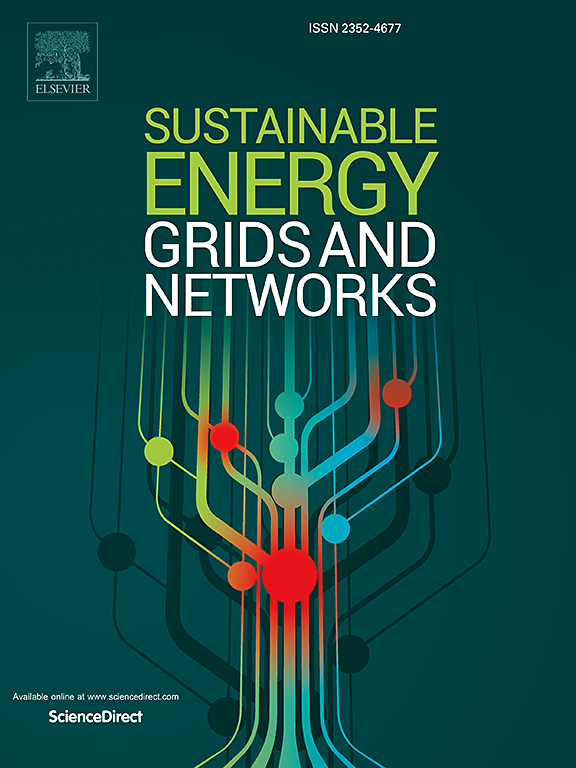Reliability evaluation of direct current gathering system in onshore wind farm based on reliability block diagram-sequential monte carlo
IF 5.6
2区 工程技术
Q2 ENERGY & FUELS
引用次数: 0
Abstract
The full DC wind power generation system has effectively overcome the harmonic resonance, reactive power transmission, and other problems of the traditional AC wind power system, which has broad prospects for development. As a key component of the mentioned system, the reliability of the collection system is critical to the safe and stable operation of the entire onshore wind farm. Firstly, this paper investigates the key equipment and topology of the onshore wind farm DC collection system. Secondly, considering both the internal components and external environment of the wind farm, a component outage probability model based on weather factors is constructed to provide accurate data for the reliability evaluation of the DC collection system of the wind farm. The Reliability Block Diagram is used to analyze the internal logical connection of different topologies of onshore wind farm DC collection systems in detail. Then, a reliability evaluation method of an onshore full DC wind farm collection system based on Reliability Block Diagram-Sequential Monte Carlo is proposed. Finally, a 50 MW onshore wind farm is studied as a sample to compare and analyze the assessment results of the reliability of different collection system topologies. The results show that the reliability of the DC collection system of onshore wind farms has significant advantages.
基于可靠性框图-序列蒙特卡罗的陆上风电场直流集电系统可靠性评估
全直流风力发电系统有效克服了传统交流风力发电系统的谐波谐振、无功功率传输等问题,具有广阔的发展前景。作为上述系统的关键组成部分,采集系统的可靠性对整个陆上风电场的安全稳定运行至关重要。本文首先研究了陆上风电场直流采集系统的关键设备和拓扑结构。其次,综合考虑风电场内部组件和外部环境,构建了基于气象因素的组件停运概率模型,为风电场直流采集系统的可靠性评估提供准确数据。利用可靠性框图详细分析了陆上风电场直流采集系统不同拓扑结构的内部逻辑连接。然后,提出了一种基于可靠性方框图--等式蒙特卡罗的陆上全直流风电场采集系统可靠性评估方法。最后,以一个 50 兆瓦的陆上风电场为样本,对比分析了不同收集系统拓扑结构的可靠性评估结果。结果表明,陆上风电场直流收集系统的可靠性具有显著优势。
本文章由计算机程序翻译,如有差异,请以英文原文为准。
求助全文
约1分钟内获得全文
求助全文
来源期刊

Sustainable Energy Grids & Networks
Energy-Energy Engineering and Power Technology
CiteScore
7.90
自引率
13.00%
发文量
206
审稿时长
49 days
期刊介绍:
Sustainable Energy, Grids and Networks (SEGAN)is an international peer-reviewed publication for theoretical and applied research dealing with energy, information grids and power networks, including smart grids from super to micro grid scales. SEGAN welcomes papers describing fundamental advances in mathematical, statistical or computational methods with application to power and energy systems, as well as papers on applications, computation and modeling in the areas of electrical and energy systems with coupled information and communication technologies.
 求助内容:
求助内容: 应助结果提醒方式:
应助结果提醒方式:


